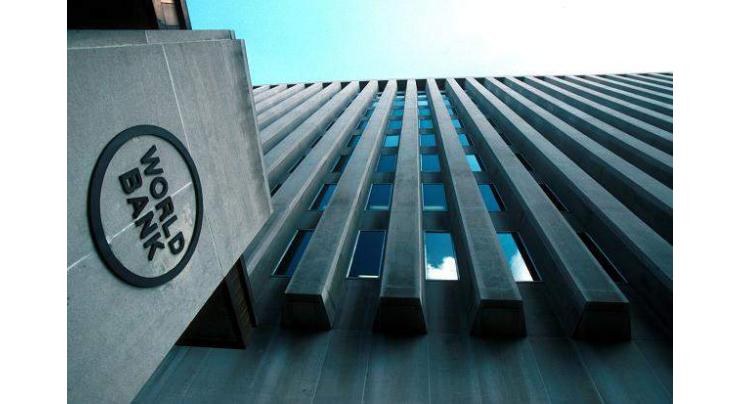
Global Displaced Made Poor Countries' Burden: World Bank
Mohammad Ali (@ChaudhryMAli88) Published September 15, 2016 | 10:10 PM

WASHINGTON, (APP - UrduPoint / Pakistan Point News -15th Sept,2016) : The overwhelming majority of the world's displaced people, a burgeoning population fed by longterm conflicts, are hosted by developing countries, according to a report released Thursday by the World Bank.
About 65 million people, roughly one percent of all humanity, now live in forced displacement, including refugees and the internally displaced, with populations fleeing war in Syria, Afghanistan, Somalia and Sudan, among others, the report said, noting that the current refugee crisis was the second-largest since World War II.
By the end of 2015, 95 percent of this population was parked precariously in developing countries and fragile states, depressing hopes for local development in host countries and feeding social strife.
"Large movements of people are also furling xenophobic reactions, even in high-income countries, and this could threaten the consensus that is underpinning global economic growth," the report said.
While the northward movements of people in distress towards Europe from Syria and Afghanistan has driven media headlines in recent years, the story is much broader, the report said. By the end of last year, three of Syria's neighbours, Turkey, Lebanon and Jordan, hosted 27 percent of all refugees while Pakistan and Iran were the new-found homes of another 16 percent.
The report called for greater involvement from the world's development sector in responding to the crisis, which it said was not traditionally a role for institutions and development agencies whose mission is to spur growth and eliminate poverty.
"Humanitarian agencies have been calling for development institutions to support new approaches that can produce sustainable solutions," the report said. "The best results are likely to be achieved when humanitarian and development actors work together." Development agencies can help address the crisis by discouraging local policies that lead to force displacement, aiding host countries' preparations and supporting the livelihoods among populations that remain behind, the report said.
The call for the development world to address the crisis of displaced populations jibed with an apparently evolving World Bank mission under President Jim Yong Kim, a medical doctor who is poised to win an uncontested reelection to a second term.
Venturing in a new direction, Kim drove the Bank's intervention in the 2014 Ebola crisis, quickly mobilising nearly $2 billion to support the international response to the disease.
Related Topics
Recent Stories

President, Saudi FM discuss challenges being faced by Muslim Ummah

Bushra Ansari ties knot with Iqbal Hussain

Shaheen likely to miss initial two matches of Pak Vs NZ T20I series

LHC suspends PML-N Rana Arshad’s victory notification from PP-133

Faizabad Dharna Commission exonerates former Spy Chief Faiz Hameed

Pakistan calls for enhanced information integrity on digital platforms

Pakistan starts discussion with IMF about new loan agreement: Finance Minister

Currency Rate In Pakistan - Dollar, Euro, Pound, Riyal Rates On 16 April 2024

Today Gold Rate in Pakistan 16 April 2024

Govt hikes petrol price by Rs4.53 per litre for next fortnight

British Investment Group, One Homes, Expected to launch second development at Ce ..

Pakistan Army continues rescue operations in rain-affected areas
More Stories From World
-
Ukraine 'ran out' of missiles to defend key plant, Zelensky says
21 minutes ago -
Chairman, CIDCA awarded Hilal-e-Quaid-Azam
41 minutes ago -
Paris 2024 Games flame lit in ancient Olympia
1 hour ago -
'Go home': Overtourism sparks backlash in Spain
1 hour ago -
Massive fire engulfs Copenhagen's historic stock exchange
2 hours ago -
Over 50 prospective Trump jurors say unable to be fair, excused
2 hours ago
-
New Godzilla x Kong film tops Chinese box office
2 hours ago -
Flash floods leave at least 1,000 homeless in northern Tanzania
2 hours ago -
Turkish foreign minister to visit Qatar for bilateral talks
3 hours ago -
Mexico City records record-high temperature of 34.2C: water commission
3 hours ago -
Three-episode TV series on cultural, ethical advancement in new era set to air
3 hours ago -
Türkiye's retail sales volume up by 25.1% in Feb
3 hours ago